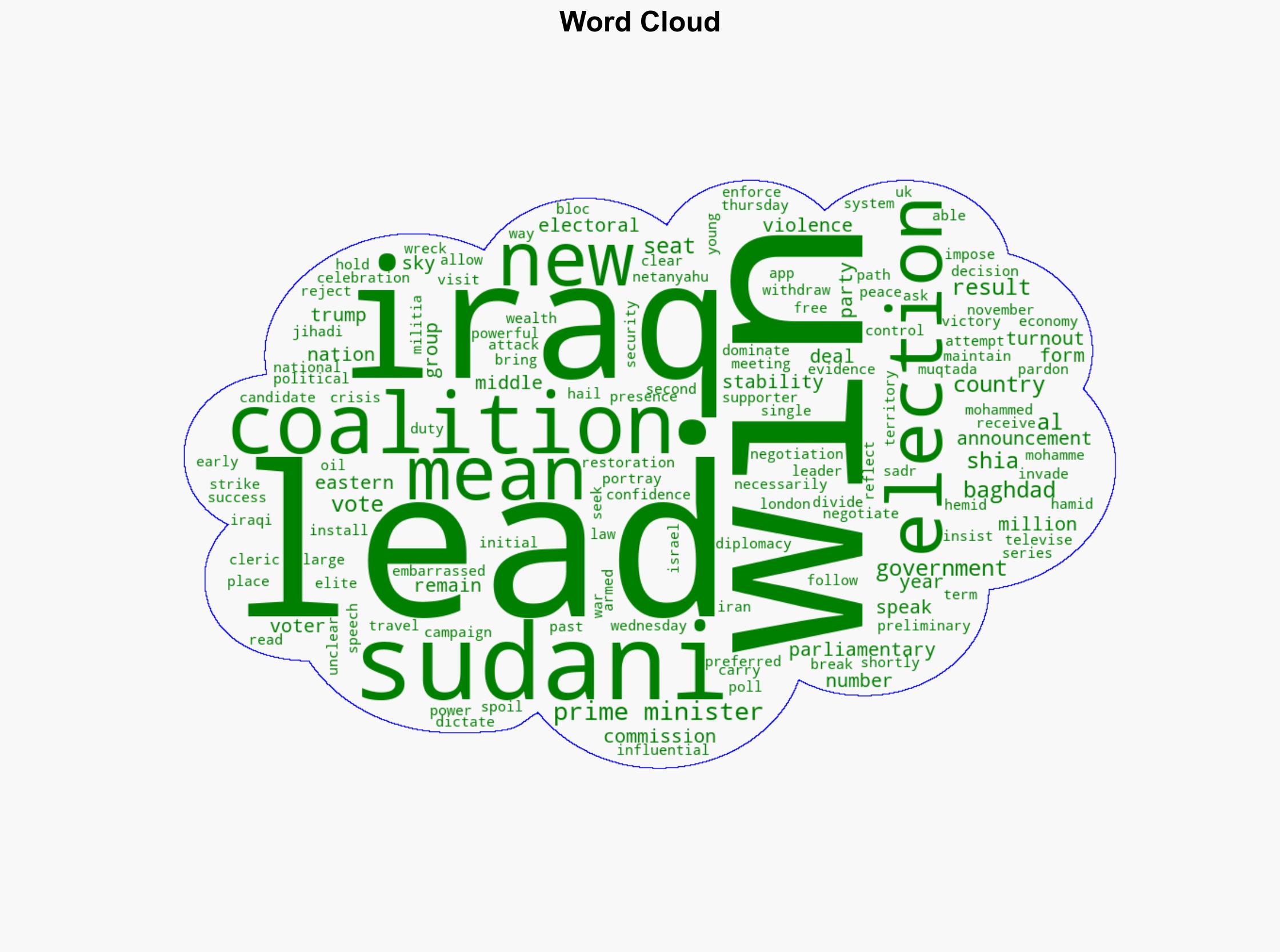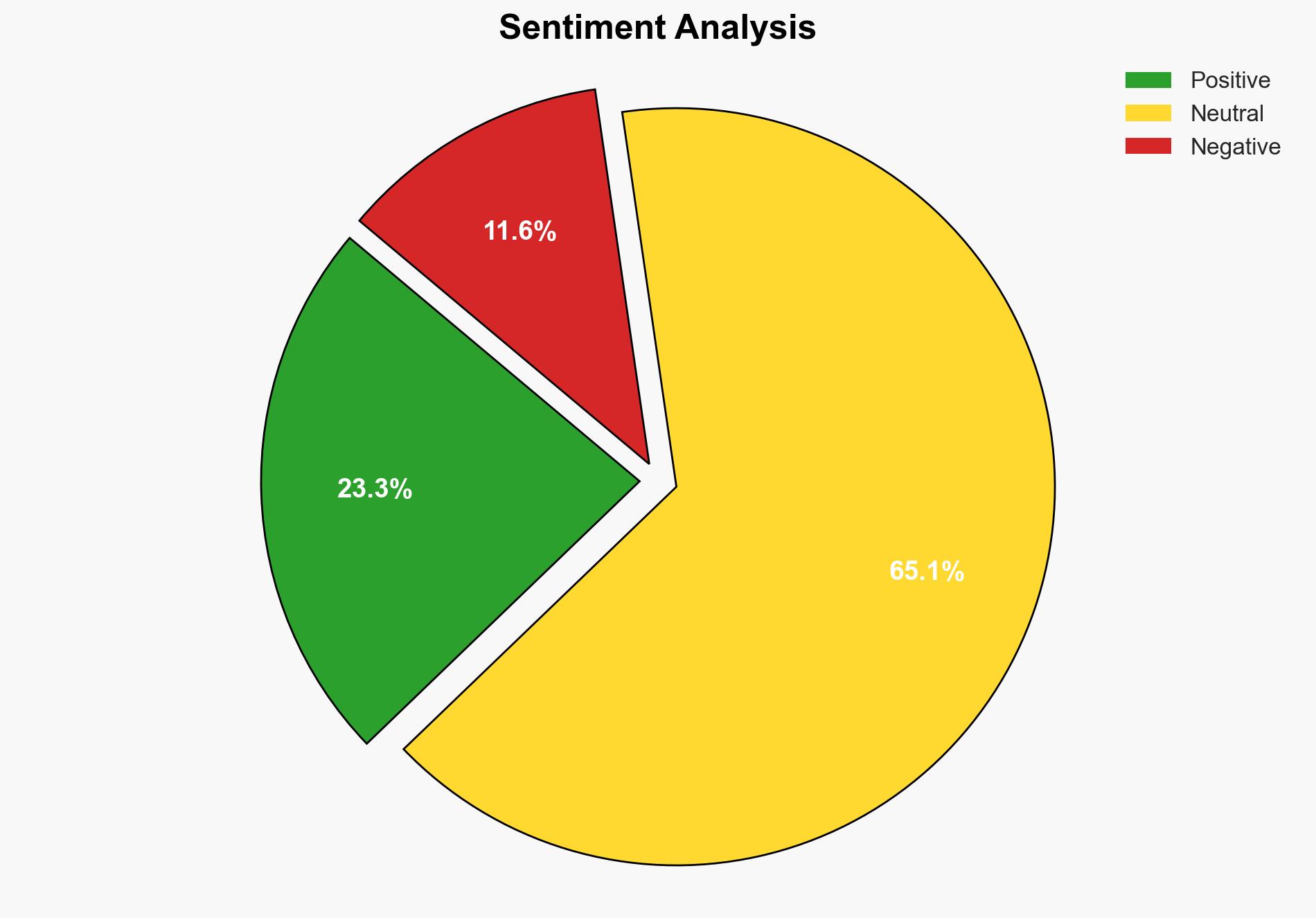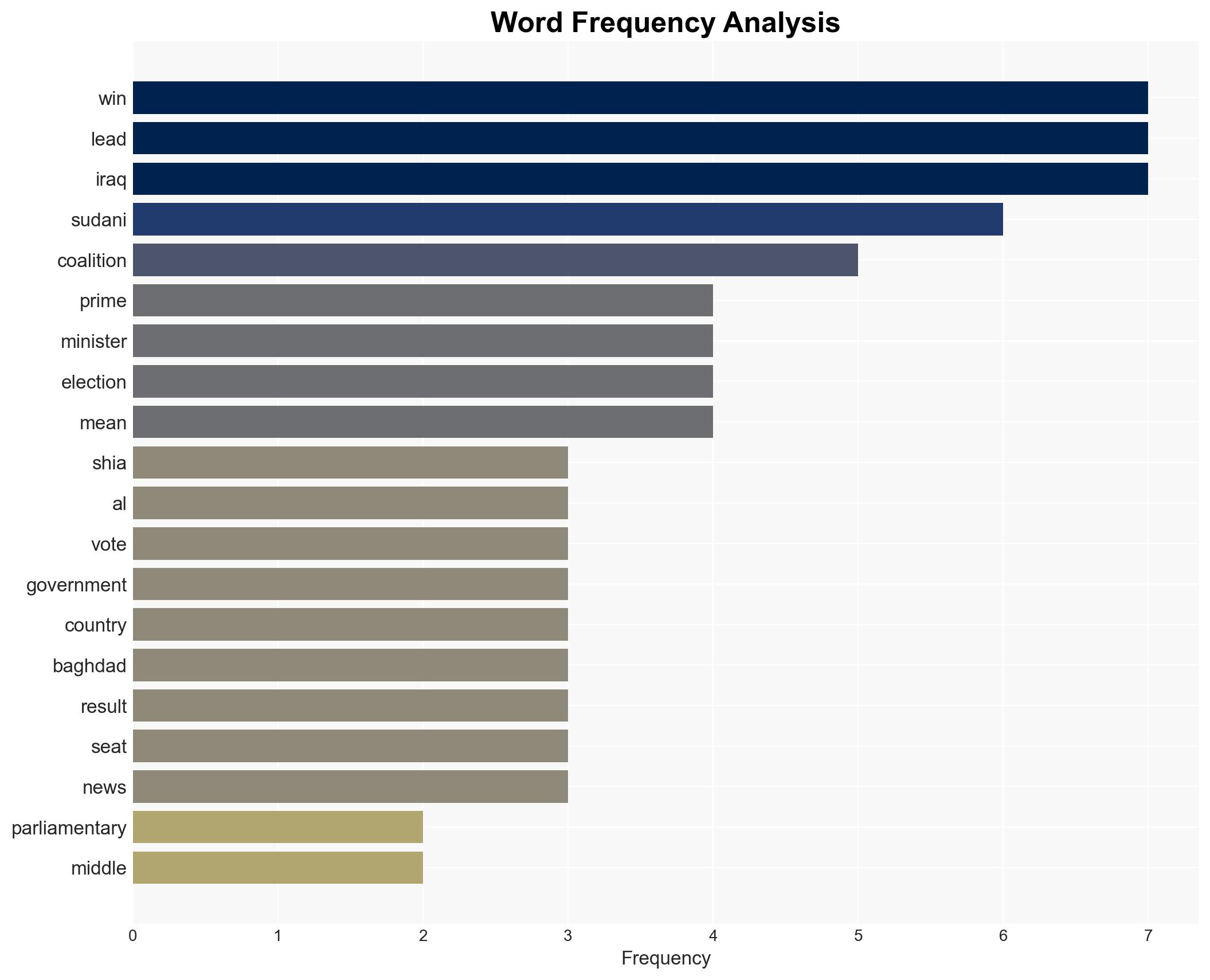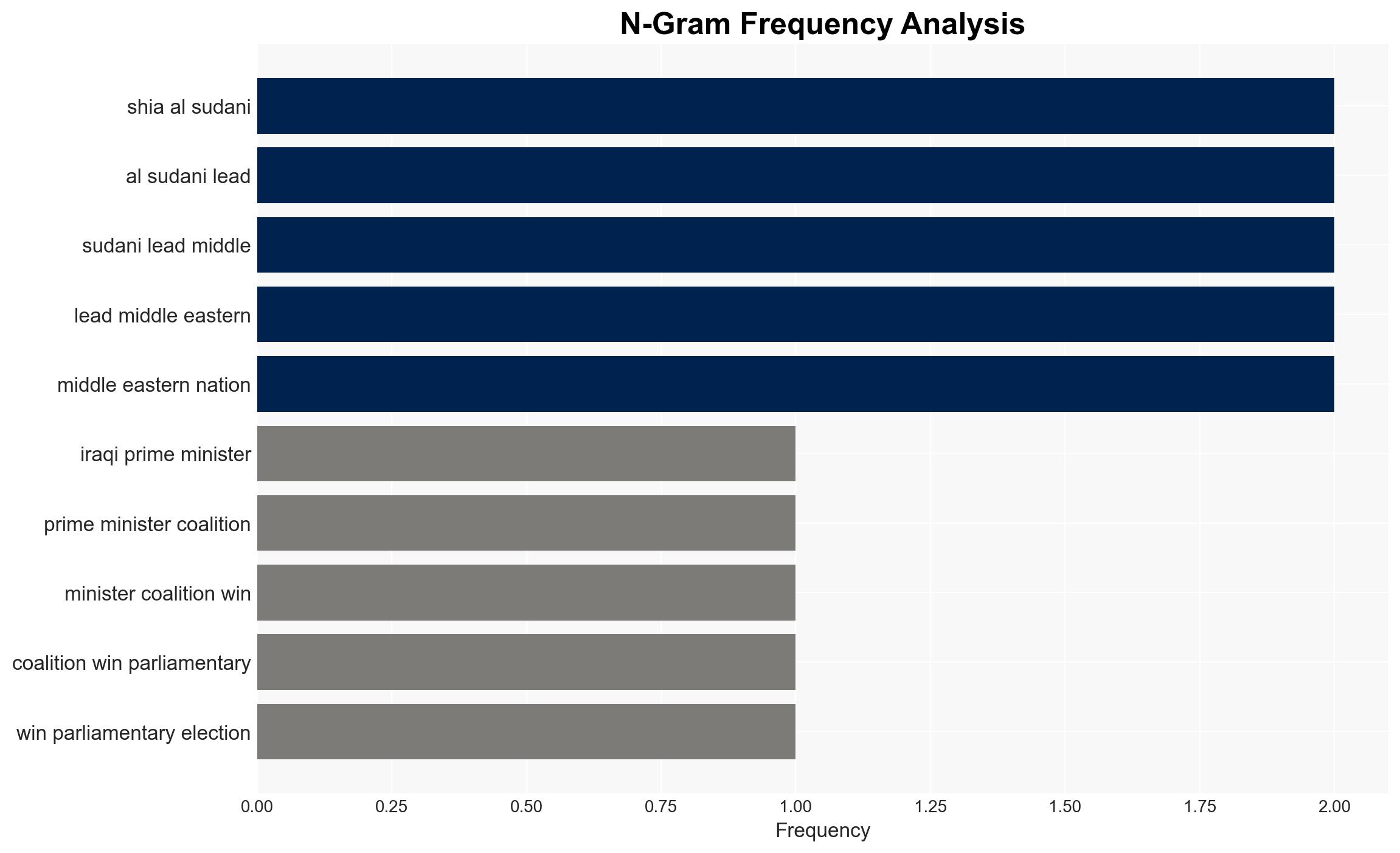Iraqi prime minister’s coalition wins parliamentary elections – Sky.com
Published on: 2025-11-13
AI-powered OSINT brief from verified open sources. Automated NLP signal extraction with human verification. See our Methodology and Why WorldWideWatchers.
Intelligence Report: Iraqi prime minister’s coalition wins parliamentary elections – Sky.com
1. BLUF (Bottom Line Up Front)
The most supported hypothesis is that Prime Minister Mohammed Shia al-Sudani’s coalition victory will lead to a period of political maneuvering, potentially resulting in a fragile government coalition. Confidence level: Moderate. Recommended action: Monitor coalition negotiations closely and assess the influence of external actors, particularly Iran, on the formation of the new government.
2. Competing Hypotheses
Hypothesis 1: Mohammed Shia al-Sudani’s coalition will successfully form a stable government, leveraging his electoral victory to consolidate power and implement reforms.
Hypothesis 2: Despite the electoral victory, the coalition will face significant challenges in forming a government, leading to political instability and potential power struggles.
Hypothesis 2 is more likely due to historical precedents in Iraq’s political landscape, where electoral victories do not guarantee stable governance due to the need for coalition-building among diverse and often conflicting political factions.
3. Key Assumptions and Red Flags
Assumptions: It is assumed that the electoral process was conducted fairly and that the reported results reflect the actual votes. There is an assumption that external actors, such as Iran, will continue to exert influence over Iraq’s political processes.
Red Flags: Low voter turnout and the withdrawal of influential figures like Muqtada al-Sadr from negotiations could indicate underlying dissatisfaction and potential for unrest. The presence of powerful militias and their possible reaction to the election outcome is a critical factor to monitor.
4. Implications and Strategic Risks
The primary risk is political instability, which could lead to a power vacuum and increased influence of non-state actors, including militias. Economic risks include potential disruptions in oil production and foreign investment due to political uncertainty. Additionally, there is a risk of increased sectarian tensions if coalition negotiations fail to be inclusive.
5. Recommendations and Outlook
- Actionable steps: Engage diplomatically with Iraqi political leaders to encourage inclusive coalition-building. Increase intelligence monitoring on militia activities and external influences, particularly from Iran.
- Best scenario: A stable government is formed, leading to economic reforms and improved security.
- Worst scenario: Prolonged political deadlock leads to civil unrest and increased militia activity.
- Most-likely scenario: A fragile coalition is formed, resulting in a government with limited capacity to implement significant reforms.
6. Key Individuals and Entities
Mohammed Shia al-Sudani, Muqtada al-Sadr, Hamid Hemid.
7. Thematic Tags
Regional Focus: Middle East, Iraq, Political Stability, Coalition Politics, External Influence.
Structured Analytic Techniques Applied
- Causal Layered Analysis (CLA): Analyze events across surface happenings, systems, worldviews, and myths.
- Cross-Impact Simulation: Model ripple effects across neighboring states, conflicts, or economic dependencies.
- Scenario Generation: Explore divergent futures under varying assumptions to identify plausible paths.
Explore more:
Regional Focus Briefs ·
Daily Summary ·
Methodology





